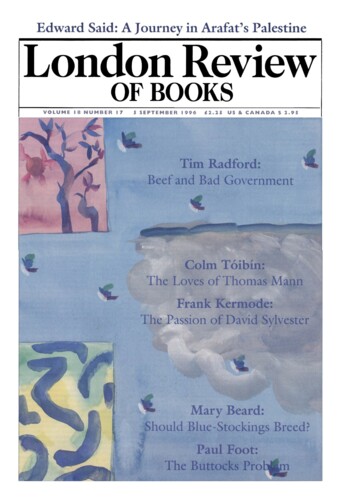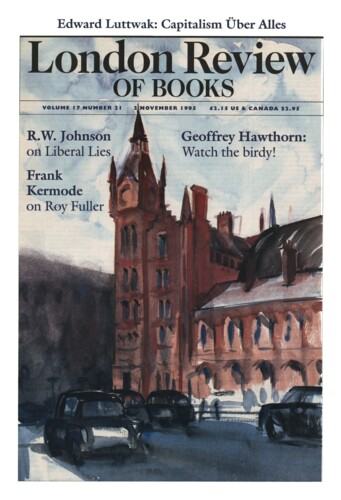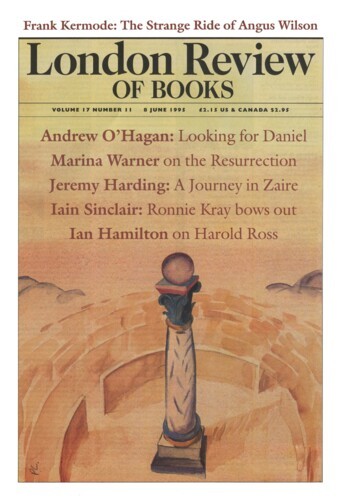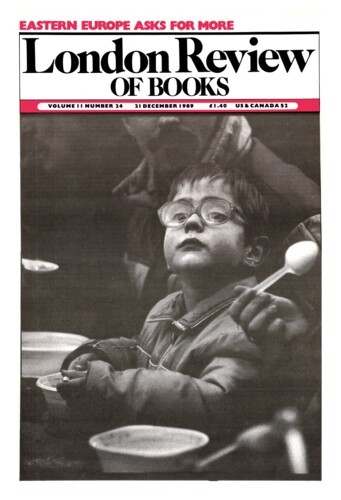I ain’t a child
Roy Porter, 5 September 1996
Anna Davin has risen admirably to the challenges facing the historian of working-class life in London. Dealing with the documents is daunting enough. To begin with, there are 17 volumes of Charles Booth’s Life and Labour of the People in London, published between 1889 and 1903. For all its faults it is the first survey of outcast London that can be described as social science and it remains a unique quarry of ‘statistics of poverty’, recording how much (or little) Whitechapel widows got paid for glueing a gross of matchboxes or how they fed a family of 14 on a few coppers a day. There is also the more personal testimony, essential for any historian concerned to capture ‘experience’ but hard to handle: nostalgic autobiographies like Charlie Chaplin’s and novels like Arthur Morrison’s Tales of Mean Streets (1894) or Israel Zangwill’s Children of the Ghetto (1892). These and a multitude of other sources, especially school records, have been meticulously sifted by Davin. Associated from its conception with the History Workshop Journal, she is a fine oral historian; her tapes go back to the Seventies – one of her interviewees was born in 1882.’





